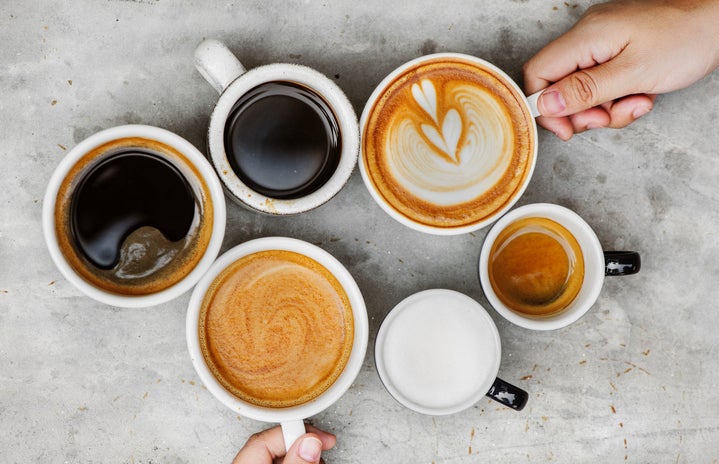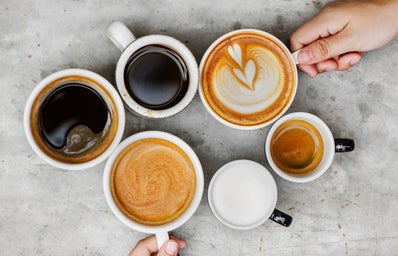I could live off of iced butter pecan lattes, but that’s probably part of the problem. A lot of my friends are coffee addicts, and it works for them because they have fancy espresso machines or their drink of a choice isn’t seasonal. For me, coffee gets old fast. Ever since I started college, I’ve been on the hunt for a good source of non-coffee caffeine. While I’ve chugged the occasional Red Bull during finals week, I’ve largely tried to avoid energy drinks, opting instead for relatively healthier options. Here are some of my favorite coffee alternatives, both specific and general.
- Half & Half Spindrift
-
Since sparkling waters & seltzers gained immense popularity in recent years, I’ve been obsessed. The trend has created a large market with multiple variations—seltzer with sugar, alcohol, CBD, and more. Spindrift differentiates itself from other seltzers by using real fruit in their drinks. The Half & Half, specifically, is black tea with lemon. The amount of caffeine in each can is perfect for an afternoon pick-me-up.
- VERB Energy Bars
-
VERB Energy Bars are only 90 calories each and contain as much caffeine as an espresso (65mg to be specific). They come in a wide variety of flavors, ranging from their most popular cookie butter flavor to fruity flavors and classics like peanut butter. My favorite is the vanilla latte one. Plus, they use green tea extract, so no jitteriness!
- Caffeinated Chocolate
-
When I lived in Warren, my frequent CityCo grocery trips always included an Awake chocolate bar. Like VERB bars, these chocolate bites are 90 calories and contain as much caffeine as a cup of coffee or a 250mL energy drink. Another popular brand of caffeinated chocolate is Good Day Chocolate, which comes in candy-coated pieces.
- Kombucha
-
I hated kombucha the first time I drank it, but it turned out to be an acquired taste for me. Kombucha is low in caffeine, but can still give you a bit of a kick. The general consensus about healthiness is that more research is needed, but in general, kombucha can be good for digestion and packed with B vitamins, antioxidants, and probiotics.
- Yerba Mate
-
Yerba Mate’s caffeine amount is somewhere between a cup of tea and a cup of coffee. Other than the energy boost, Yerba Mate is also proven to be healthy— it’s packed with antioxidants, nutrients, anti-inflammatory properties, and more.
For some of us, cutting down on coffee is nearly impossible without another caffeine source. Whether you’re trying to watch how much money you spend at Starbucks or just looking for energy without some of the jitteriness that comes with coffee, give some of these alternatives a try! They’re all quick fixes too (no brewing or filtering necessary)— perfect for a boost in between classes!
Want to keep up with HCBU? Make sure to like us on Facebook, follow us on Instagram, check out our Pinterest board, and read our latest Tweets!


